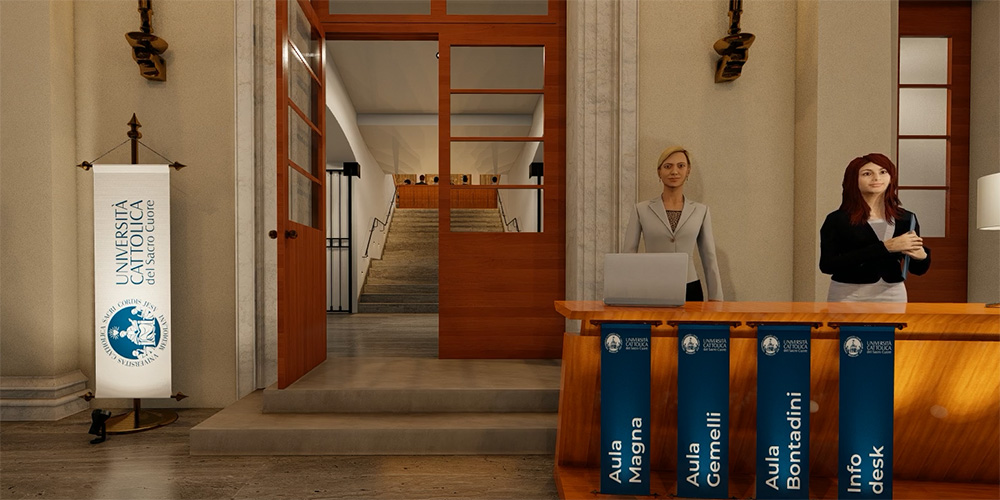The programme in a nutshell
Language, culture and history: the foundations on which to build strong international relations
Thanks to the contribution of the Faculty of Political and Social Sciences, the study plan of this course proceeds in parallel in two different directions: on the one hand, preparation in languages with particular attention to the culture of other countries, and on the other hand, the area of historical, political, legal and communication teachings.
Two curricular paths
Starting from the 2025/2026 academic year, students can choose between two differentiated curricular paths to begin specializing in the subject area of their interest:
- The curriculum in: Language Mediation and International Policies includes historical, political and legal courses closely related to the processes of international politics and trains professionals able to interact with the complex dynamics of globalization and the growing interdependence between the world's macro-regions.
- The curriculum in Languages and Communication for International Organizations focuses on communication modalities for international institutions and policies, with the aim of providing the necessary tools to facilitate dialogue and understanding between different stakeholders, which may include governments and international organizations, NGOs, businesses and local communities. This curriculum trains professionals able to operate effectively in international contexts, developing communication and negotiation skills that foster the building of solid and fruitful relationships between the different parties.
Teaching methodology
Finally, the degree course is characterized by active teaching, careful to provide an adequate preparation that integrates the academic aspects with the more specifically professional ones. In addition to the lectures, students will have the opportunity to participate in thematic seminars, exercises and to carry out project work, also enriching their path with internship and traineeship experiences in collaboration with public and private bodies.
And then? Future opportunities
The interdisciplinary training allows graduates to work in different sectors: multinational companies, with administrative, linguistic mediation or foreign relations management tasks; organization of events, with mediation and assistance tasks; Bodies and Institutions, in roles in close contact with situations and subjects of international importance.
UnicattX: Unicatt's virtual reality
Presentation
The interfaculty undergraduate degree programme in Linguistic Sciences for International Relations, which belongs to the Faculty of Linguistic Sciences and Foreign Literatures and the Faculty of Political and Social Sciences, aims to deepen a tradition of interdisciplinary and multidisciplinary studies in the field of Linguistic Sciences, which the Faculty of Linguistic Sciences and Foreign Literatures has been pursuing for many years now. The degree programme offers a high-level multidisciplinary training divided into two interconnected teaching components: on the one hand there is the field of disciplines related to the understanding and learning of languages, with particular attention to the cultures of the various countries; on the other hand, there is the field of historical, political and legal courses related to international relations. This programme trains professionals with a preparation that opens up to the complex dynamics of globalization and the growing interdependence between the world's macro-regions.
Find out more
- Faculty of Linguistic Sciences and Foreign Literatures
- Faculty Guides
- Syllabi, class schedules, exams
- Classroom changes, extraordinary and suspended classes
- iCatt | Blackboard
- Milan Student Services Centre
- Tutors
- ECTS Guide
- Cattolica Students’ Website
- The Milan Campus: stories, images and curiosities




